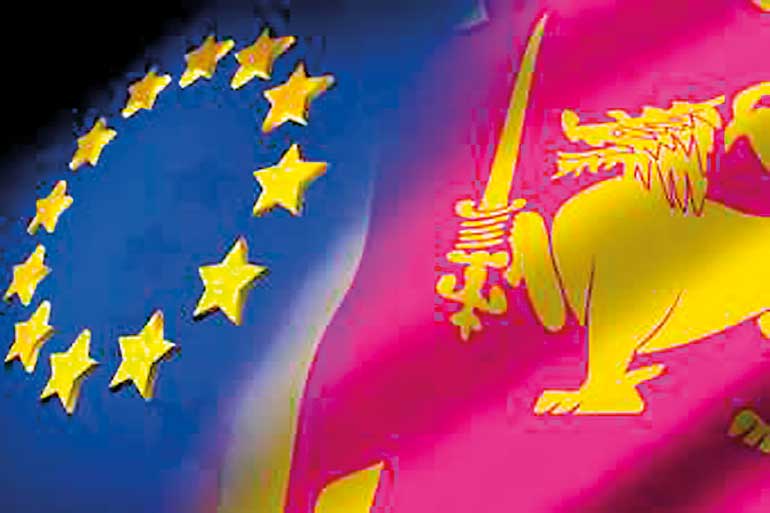Thursday Feb 19, 2026
Thursday Feb 19, 2026
Tuesday, 31 May 2016 00:26 - - {{hitsCtrl.values.hits}}
Following successful engagement on lifting the fisheries ban, expansion into reconciliation and governance will be part of the European Union’s wider strategy with Sri Lankan over the next four years, a statement said yesterday as both sides continued to work towards stronger governance.
The EU-Sri Lanka Working Group on Cooperation concluded on Monday with both sides agreeing to follow-up engagement. During the meeting the two sides discussed new opportunities for assistance, the EU said in a statement.
In line with the priorities of the Government of Sri Lanka, it was agreed that the focus of EU’s development strategy for Sri Lanka up until 2020 would be expanded. The EU will continue to support Integrated Rural Development in Sri Lanka in order to foster inclusive economic growth and sustainable development, while reducing poverty and addressing global issues such as climate change.
The EU will also assist Sri Lanka in the field of reconciliation and democratic governance to support the Government in addressing the root causes of the conflict, promote lasting reconciliation and democratic, accountable governance.

The meeting was co-chaired by Jorge de la Caballeria, Head of Unit for South Asia and South East Asia – Directorate General for International Cooperation and Development of the European Commission and M.I.M Rafeek, Secretary of the Ministry of National Policies and Economic Affairs of Sri Lanka.
Earlier this year during his visit to Sri Lanka, EU Commissioner for International Cooperation and Development, Neven Mimica, signed two Financing Agreements with the Government of Sri Lanka, one in support of Integrated Rural Development in Uva and Central Provinces (EUR 30 million) and a second providing Trade Related Assistance (EUR 8 million). The EU is also in the process of exploring the most effective ways to financially support Sri Lanka’s national development strategies, including poverty reduction, and promote sound and transparent public finances.
At the conclusion of the working group, Caballeria said: “The EU, in close consultation with the Government, is currently in the process of revising its development strategy for Sri Lanka. Besides a continuing focus on Integrated Rural Development, the country strategy will also support the Government’s plans for Reconciliation and Governance. We hope that the new priorities will assist the Government in the implementation of the UNHRC Resolution on Sri Lanka, encompassing the areas of accountability and transitional justice, resettlement and durable solutions, governance and reconciliation.”
Rafeek said: “The Government of Sri Lanka appreciates the assistance received from the EU for the development of the country and its citizens and hopes that EU will continue to assist the Government in achieving its medium term target of becoming an upper middle income country.”
Both parties agreed on a series of actions for follow-up. The Working Group will report its conclusions to the EU-Sri Lanka Join Commission planned to be held in Brussels in early July. The next meeting of the EU-Sri Lanka Working Group on Cooperation will take place in Brussels within 12 months.
Senior officials from the European Union and other ministries of Sri Lanka also participated in the meeting. The visiting delegation led by Caballeria also met with the Deputy Minister of Foreign Affairs Dr. Harsha de Silva.
The EU and Sri Lanka have enjoyed diplomatic ties that span more than 40 years. Over the last decade, the EU has been one of the leading international donors, providing support for conflict affected people, the reconstruction of houses post-tsunami, and grassroots development, aimed at helping the poorest people in Sri Lankan society. Last week, the EU provided EUR 200,000 (Rs. 32.8 million) to assist the populations most affected by the recent floods and landslides. The EU has set aside up to EUR 210 million (approx. Rs. 34 billion) for Development Cooperation with Sri Lanka up to 2020.